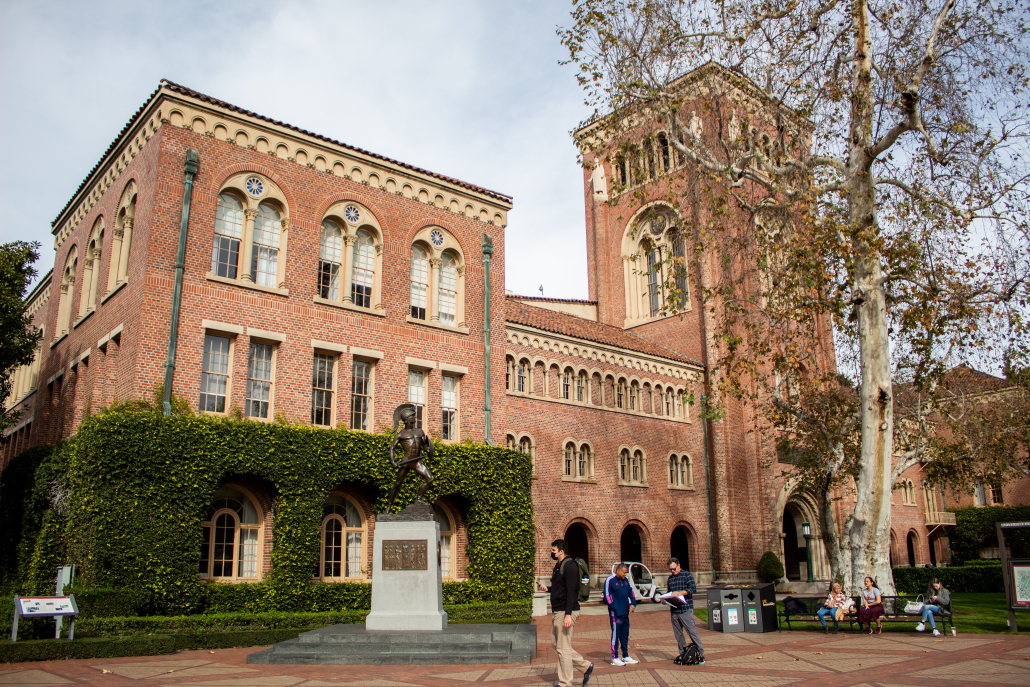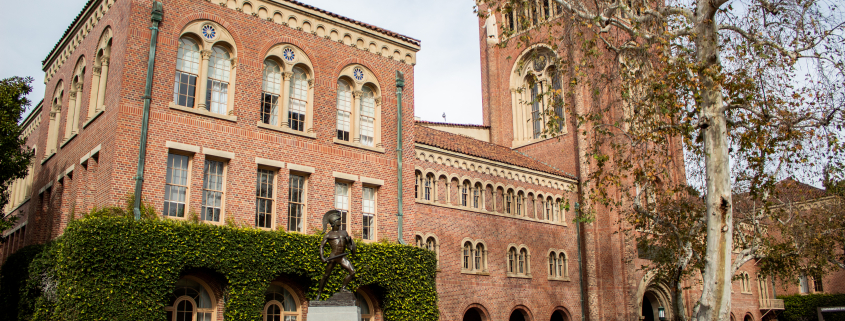Decline in English, humanities majors stabilizes at USC

Unlike the decline in the number of humanities and English majors over the past decade at institutions such as Arizona State University and Harvard University reported by The New Yorker, USC’s humanities and English majors have remained constant in the last few years.
USC awarded around 325 undergraduate degrees in humanities and English between July 2010 and June 2011, representing 6.6% of degrees conferred. This figure dropped to 5% between July 2018 and June 2019. However, from July 2018 to June 2021, the figure has been consistent at 5%, stagnating the decline.
One of the factors that may be contributing to the decline in English and humanities majors is that students interested in these fields are more passionate about other fields, and hence opt for those as their majors, said David St. John, English department chair. This increased interest in other fields is supported by the increase in STEM majors, from 18.5% of all undergraduate degrees between July 2010 and June 2011 to 26% between July 2020 and June 2021. A few of the best students in his creative writing classes were STEM students with a passion for poetry, fiction and nonfiction, St. John said.
“If they don’t choose [English], it’s because they are also equally gifted in something else,” he said.
Thematic Option is a program offered by the University to 200 freshmen with the opportunity to question the work of influential philosophers and writers while satisfying their general education requirements. This is often an option for students who wish to explore the humanities without the commitment of declaring a major.
Manas Garg, a freshman majoring in computer science and business administration, said he chose Thematic Option because, despite being interested in philosophy and literature, he found it difficult to minor or double major in these fields because of his already heavy course load.
“I genuinely feel more inclined towards tech and business than I am interested in philosophy,” Garg said. “It has better future opportunities than literature and philosophy on a large scale.”
Srishti Sunder, a freshman majoring in economics and math, switched out of the law, history and culture major to a STEM major because of this.
“If I did law, history and culture, there were really very limited career opportunities and very limited income opportunities,” Sunder said. “I’d have to do a masters in law … with only an undergraduate, I could work administratively in a law office, but wouldn’t be able to do anything to further help any case.”
However, Emma Garcia, a freshman majoring in law, history and culture, doesn’t believe there are limited career opportunities in the humanities. She continues to pursue this major because she sees a future.
“Everything we consume in our daily life comes from humanities, arts and literature,” Garcia said. “You can go into law, politics and social work. There are plenty of things you can do with a degree in the humanities.”
Juan Corona, a freshman majoring in American studies and ethnicity, said they are often ridiculed for pursuing a humanities degree.
“It’s something that’s unfair: Being in the humanities and often being perceived as a joke,” Corona said. “I am still going to earn just as valid a degree.”
Garcia said there is a huge emphasis on majoring in STEM because of the technological developments that have been taking place recently.
“Our society puts a lot of emphasis on studying STEM and science as opposed to the humanities or liberal arts,” Garcia said.
STEM companies don’t recruit engineering majors exclusively, St. John said; he has come across students who are English majors who have been recruited by banks, technology companies and startups.
“Your skills as writers and your skills at being able to articulate ideas make you valuable to not just advertising companies or a speech writer at a political office,” St. John said. “Every industry, every organization, relies on having someone who can really communicate … they need to be able to articulate and embody whatever the vision is of that place.”
Contrary to national trends, English majors at USC have stayed stable at approximately 1% of the class from 2017 to 2021. St. John attributed this to USC’s English curriculum, which has three different tracks — critical track, creative writing and narrative studies — and allows the department to adapt to the shifting interests of students, along with the diverse and exceptional quality of the faculty.

